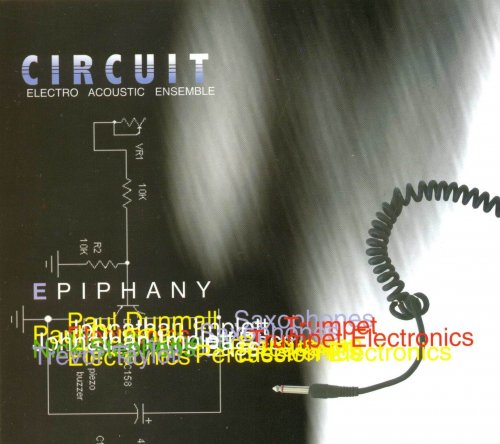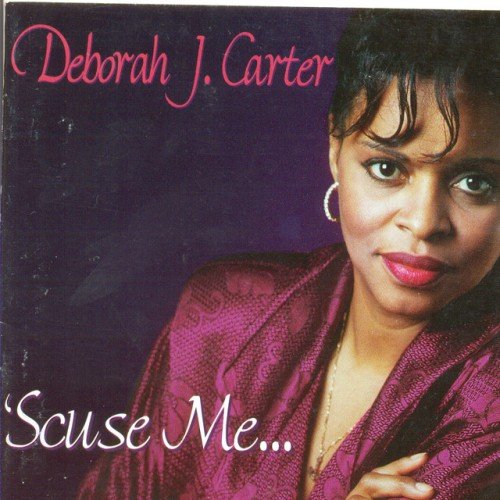Mari Takano - Women's Paradise (2002)

Artist: Mari Takano
Title: Women's Paradise
Year Of Release: 2002
Label: BIS
Genre: Classical
Quality: FLAC (image+.cue,log,scans)
Total Time: 62:55
Total Size: 279 Mb
WebSite: Album Preview
Tracklist: Title: Women's Paradise
Year Of Release: 2002
Label: BIS
Genre: Classical
Quality: FLAC (image+.cue,log,scans)
Total Time: 62:55
Total Size: 279 Mb
WebSite: Album Preview
Mari Takano (b. 1960)
[1]-[4] Women’s Paradise (1988-1991)
I. Das unendliche Geschwätz (female choir and sampler)
II. Sexality (mezzo-soprano, viola, 3 synthesizers)
III. Casablanca (soprano, alto & baritone saxophones, viola, 2 synthesizers)
IV. L’abandon (synthesizer & sequencer)
Christiane Iven, mezzo-soprano (Sexality)
Women’s choir: Maria Kleina, Martina Schänzle, Jacqueline Zander,
Regina Engelhardt, Ina Jaks, Petra Wittenberg (Das unendliche Geschwätz)
Thomas Gramatzki, soprano, alto & baritone saxophones (Casablanca)
Mike Rutledge, viola (Sexality and Casablanca)
Hans Peter Reutter, synthesizer (Sexality, Casablanca)
Mari Takano, synthesizer (Sexality)
Hubertus Dreyer, synthesizer (all movements) and synthesizer programming
Christine Hintz, conductor (Das unendliche Geschwätz, Casablanca)
[5]-[6] Two Chansons (1997)
Eiko Morikawa, soprano; Hubertus Dreyer, piano
[7]-[8] Mugen No Tsuki – Mugen No Hoshi (1998)
Yoko Nishi, koto; Miki Maruta, jushichigen; Ko Ishikawa, sho;
Hitomi Nakamura, hichiriki; Kioko Yasuda, violin;
Masayuki Honda, conductor
[9] Blumen-Arie (1993)
Eiko Morikawa, soprano; Kioko Yasuda, violin; Norio Sato, guitar;
Hubertus Dreyer, piano; Masayuki Honda, conductor
[10] Innocent (2000)
Hubertus Dreyer, piano
Performers:
Christiane Iven mezzo-soprano
Thomas Gramatzki soprano, alto & baritone saxophones
Mike Rutledge viola
Hans Peter Reutter synthesizer
Mari Takano synthesizer
Hubertus Dreyer synthesizer, piano
Christine Hintz conductor
Eiko Morikawa soprano
Yoko Nishi koto
Miki Maruta jushichigen
Ko Ishikawa sho
Hitomi Nakamura hichiriki
Kioko Yasuda violin
Masayuki Honda conductor
Mari Takano, from the standard publicity photograph she uses, looks like a soccer mom ready to go out on a date with her husband, taking a phone call in the kitchen before she heads out the door. Nothing in the photo would give you the impression that Takano is a venturesome and fiercely original classical composer who has studied with Brian Ferneyhough and György Ligeti. Nor has she trod the typical path taken by Asian musicians who study advanced contemporary music in Europe; instead of remaining in Germany when her studies were completed, Takano returned to Japan to pursue her career as a composer at home. This is probably the toughest decision she could have made; whereas on American news telecasts women anchors take on roles that are roughly equal, if at times rather uneasily managed to the men, in Japan the women anchors are merely there to look adoringly at the male anchors and smile at the camera. This is symptomatic of cultural norms in Japan regarding women in public life, and they are deeply rooted; in her work, Takano is bravely bucking that trend.
The five pieces on her BIS disc Mari Takano: Women's Paradise fairly seethe with "feminine logic" from her choice of instrumentation down to the unconventional, yet practical and intuitive sense of form, which permeates the whole album. Every instrument here is used as a tool to open up a new dimension, yet not one that pushes instruments to their extremes in the fashion of a typical "Darmstadt" chamber ensemble; every note of this music is warm and human and still provocative and challenging. In the title work, she provides for a digital sampler to pitch a voice up into the stratosphere out of a closely knit chorus of women's voices, in another part of it she combines three saxophones, viola, and two synthesizers in slithery eighth-note runs that are both dazzling and sexy. Mogen No Tsuki -- Mugen No Hoshi (roughly, Boundless Moon -- Dreamed Stars) utilizes traditional Japanese instruments with a violin, but Minoru Miki this is not -- Takano's instrumental lines are independent and she seems to delight in the bright, clashing sounds they produce as a result of her sinuous mixture of modality, dissonant counterpoint, and effects. Her vocal settings, sung beautifully by Eiko Morikawa, are set to long, romantic texts that take stream of consciousness as a point of departure -- they are very frank and direct, and the music follows the mood of the text in a way that is captivating. Her piano solo Innocent is a low-key lament for an ill-fated pet that betrays an interest in jazz harmonies, yet would never be mistaken for jazz. In her liner notes, Takano willfully admits influences in music ranging from Meredith Monk to Prince and is not afraid to do so, yet there is nothing on the disc that could be confused as pop music or crossover -- it is in a category of its own.
None of the five pieces is quite the same, and yet Takano's tremendous versatility and wide range of ideas are a strong part of the appeal. Women's Paradise is highly inspired, iconoclastic music that is pioneering an international sense; Takano follows her will and her whim, and they take her, and us, to places we have never been before. BIS' Mari Takano: Women's Paradise is a product that only could have come from a woman and her sense of intuition, and its consistently high level of innovation puts many of her male contemporaries on the defensive.
The five pieces on her BIS disc Mari Takano: Women's Paradise fairly seethe with "feminine logic" from her choice of instrumentation down to the unconventional, yet practical and intuitive sense of form, which permeates the whole album. Every instrument here is used as a tool to open up a new dimension, yet not one that pushes instruments to their extremes in the fashion of a typical "Darmstadt" chamber ensemble; every note of this music is warm and human and still provocative and challenging. In the title work, she provides for a digital sampler to pitch a voice up into the stratosphere out of a closely knit chorus of women's voices, in another part of it she combines three saxophones, viola, and two synthesizers in slithery eighth-note runs that are both dazzling and sexy. Mogen No Tsuki -- Mugen No Hoshi (roughly, Boundless Moon -- Dreamed Stars) utilizes traditional Japanese instruments with a violin, but Minoru Miki this is not -- Takano's instrumental lines are independent and she seems to delight in the bright, clashing sounds they produce as a result of her sinuous mixture of modality, dissonant counterpoint, and effects. Her vocal settings, sung beautifully by Eiko Morikawa, are set to long, romantic texts that take stream of consciousness as a point of departure -- they are very frank and direct, and the music follows the mood of the text in a way that is captivating. Her piano solo Innocent is a low-key lament for an ill-fated pet that betrays an interest in jazz harmonies, yet would never be mistaken for jazz. In her liner notes, Takano willfully admits influences in music ranging from Meredith Monk to Prince and is not afraid to do so, yet there is nothing on the disc that could be confused as pop music or crossover -- it is in a category of its own.
None of the five pieces is quite the same, and yet Takano's tremendous versatility and wide range of ideas are a strong part of the appeal. Women's Paradise is highly inspired, iconoclastic music that is pioneering an international sense; Takano follows her will and her whim, and they take her, and us, to places we have never been before. BIS' Mari Takano: Women's Paradise is a product that only could have come from a woman and her sense of intuition, and its consistently high level of innovation puts many of her male contemporaries on the defensive.

![Eero Koivistoinen - For Children (1970) [2006] Eero Koivistoinen - For Children (1970) [2006]](https://www.dibpic.com/uploads/posts/2026-02/1771615516_ff.jpg)


![Jeremy Pelt - Our Community Will Not Be Erased (2026) [Hi-Res] Jeremy Pelt - Our Community Will Not Be Erased (2026) [Hi-Res]](https://www.dibpic.com/uploads/posts/2026-02/1771945030_folder.jpg)



![Moonchild - Waves (2026) [Hi-Res] Moonchild - Waves (2026) [Hi-Res]](https://www.dibpic.com/uploads/posts/2026-02/1771498123_a3922124048_10.jpg)